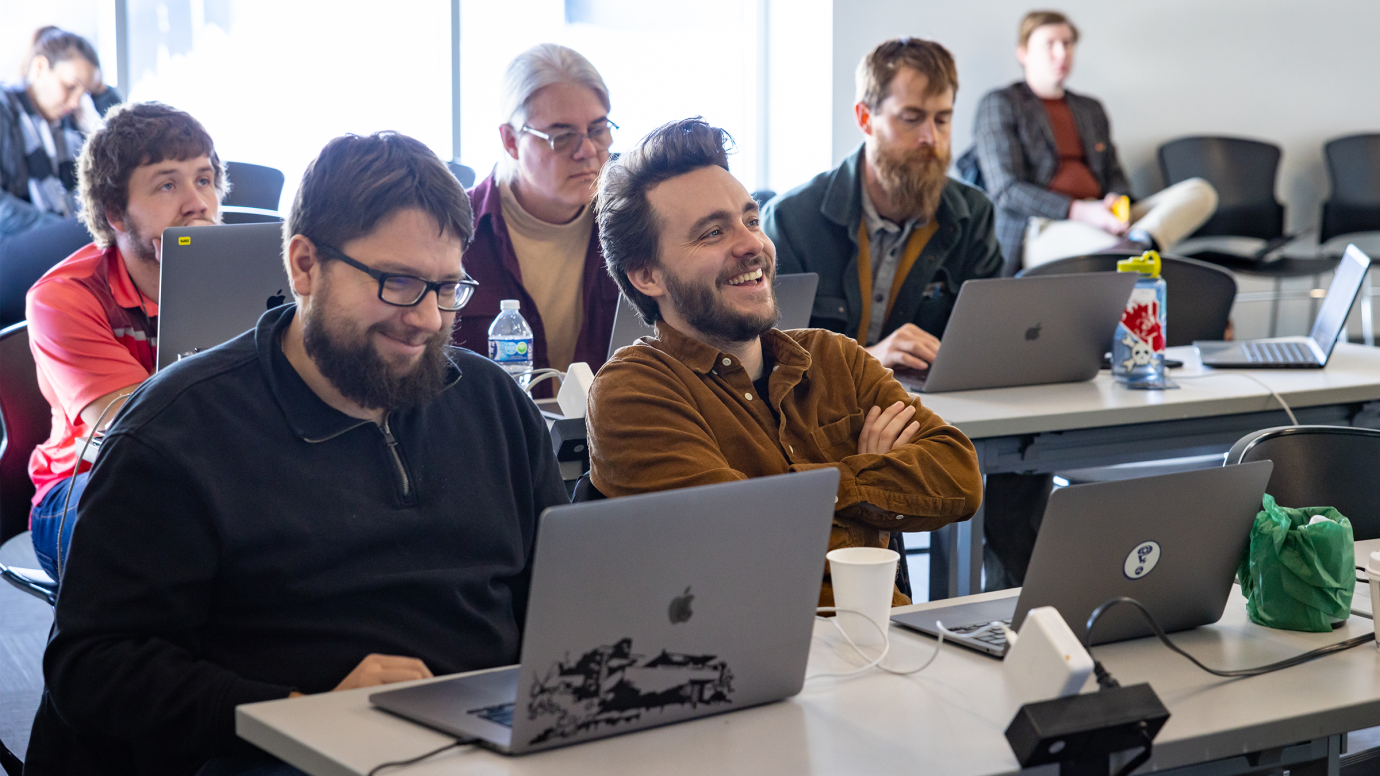Deeper Talks: SURF Seminar Series
The Institute and SURF is proud of its researcher community and this series aims to strengthen the sense of intellectual community. It provides a platform for researchers to discuss their work, share insights, and foster interdisciplinary connections.
Upcoming Talks
Click here to sign up for a monthly notification about upcoming talks.
![]() IMPORTANT! Beginning March 2026, you will find all future talks at Institute.surf/JBC. This monthly series has been renamed to honor Dr. John Bahcall, whose scientific vision and mentorship left an enduring imprint on neutrino astrophysics and SURF itself.
IMPORTANT! Beginning March 2026, you will find all future talks at Institute.surf/JBC. This monthly series has been renamed to honor Dr. John Bahcall, whose scientific vision and mentorship left an enduring imprint on neutrino astrophysics and SURF itself.
March 10, 2026
Topic: John Bahcall: The Godfather of Neutrinos (register here)
Speaker: Dr. Neta Bahcall of Princeton University
![]() This talk launches the newly renamed colloquium—formerly the Deeper Talks series—in honor of John Bahcall, whose scientific vision and mentorship left a lasting impact on neutrino astrophysics and on SURF. Best known for developing the Standard Solar Model and advancing the solar neutrino problem, Bahcall also championed curiosity-driven research and the mentoring of young scientists, many of whom are now leaders in the field. Renaming the series reflects The Institute’s commitment to his legacy: advancing fundamental science, supporting the next generation of researchers, and fostering a collaborative scientific community.
This talk launches the newly renamed colloquium—formerly the Deeper Talks series—in honor of John Bahcall, whose scientific vision and mentorship left a lasting impact on neutrino astrophysics and on SURF. Best known for developing the Standard Solar Model and advancing the solar neutrino problem, Bahcall also championed curiosity-driven research and the mentoring of young scientists, many of whom are now leaders in the field. Renaming the series reflects The Institute’s commitment to his legacy: advancing fundamental science, supporting the next generation of researchers, and fostering a collaborative scientific community.
Abstract: Dr. Neta Bahcall, Princeton University astrophysicist and wife of the late John Bahcall, will speak on his extraordinary scientific legacy, alongside highlights of her own pioneering research on dark matter and the large-scale structure of the universe.
John Bahcall was one of the towering figures of 20th century astrophysics. He pioneered the theory of Solar Neutrinos, which led to the first detection of neutrinos from the Sun in the 1960’s at the Homestake mine by Ray Davis. Their joint work proved -- for the first time — how the Sun shines. Neta will recount John and Ray's remarkable scientific journey to reveal the mystery of solar neutrinos. John’s creation of the Standard Solar Model, combined with decades of experimental results, ultimately revealed — after nearly 40 years — that neutrinos have mass, contrary to all expectations. These discoveries were recognized with two Nobel prizes.
John’s work launched the field of Neutrino Astrophysics, which continues to flourish today at SURF and around the world. His legacy extends to foundational contributions in galactic and extragalactic astrophysics, his visionary role in the design and advocacy of the Hubble Space Space Telescope, his leadership of the astronomical community, and his dedicated mentorship of generations of young scientists.
Neta will also briefly discuss the ‘dark side of the universe’ — dark matter and dark energy — which together make up most of the mass-energy in the cosmos.
![]() IMPORTANT! Beginning March 2026, you will find all future talks at Institute.surf/JBC. This monthly series has been renamed to honor Dr. John Bahcall, whose scientific vision and mentorship left an enduring imprint on neutrino astrophysics and SURF itself.
IMPORTANT! Beginning March 2026, you will find all future talks at Institute.surf/JBC. This monthly series has been renamed to honor Dr. John Bahcall, whose scientific vision and mentorship left an enduring imprint on neutrino astrophysics and SURF itself.

Event Details
When: Monthly on 2nd Wednesday from 9:00 – 10:00 a.m. MT
How: online or in person at the Sanford Lab Homestake Visitor Center
Who attends: Deeper Talks is intended primarily for a research-focused audience. Most participants are specialists within the featured discipline, though researchers from related fields frequently attend and contribute valuable interdisciplinary perspectives. Attendees represent a broad spectrum of career stages, including undergraduate and graduate students, postdoctoral researchers, and senior investigators.
Event details:
8:45 a.m. Informational Video begins
9:00 a.m. Presentation begins
9:40 a.m. Q&A with speaker
9:50 a.m. Program concludes